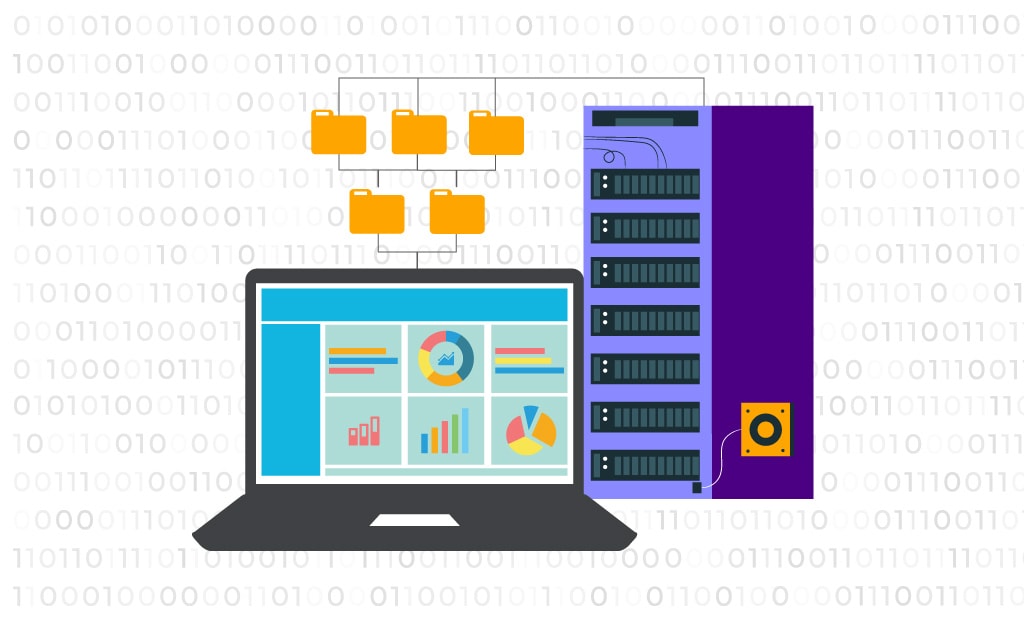A manufacturing or distribution enterprise generates immense amounts of operational data on a day to day basis. This data, if managed correctly via a centralized database of an ERP software, reaps great benefits for the enterprise.
Data management system has been around for years and decades, but it’s still an untapped territory when it comes to the manufacturing and distribution domain. Small and medium enterprises haven’t really mastered the art of using enormous amounts of data to fuel enterprise efficiency and growth. A majority of them still generate, manage and purge data using old-school methods which are vastly manual and inefficient in nature.
Let us take you through a world where data is managed in silos.
What happens in a manual data management world?
Well, you have an enterprise up and running, but your data is managed in various places.
Your incoming leads, RFQs, enquiries, follow-ups and contact details are managed on notepads/diaries and spreadsheets. At the max, the front-desk and the sales team have access to a stand-alone CRM system where they keep a record of all the above.
Sales orders are manually created, printed, sent for approval. Paper work orders are created and dispatched to the shop floor manually. Manual pick lists are printed and dispatched to the warehouse to retrieve goods. The work order document is passed on from one work center to another for status update till the goods are manufactured.
The goods are dispatched to the customer and the invoices are created, printed and emailed to the customer.
From enquiry to goods delivery, paper is flying everywhere and data is recorded in different systems, spreadsheets and papers. Update to the inventory is done separately in a different spreadsheet/stand-alone system, the shipping details are in a separate system, and invoices are recorded separately. Accounts receivables are recorded in files.
Things are convenient till the time a critical piece of data goes missing and everyone within the department starts searching for it rather than focusing on the job at hand. This leads to wastage of time, resources, manpower, money and reputation.
What is a Centralized Data Management System?
As the name suggests, centralized data management system is a system where the data, collected from various functional modules within a software is stored in a single database.
An ERP software has the ability to collect and store enterprise-wide data within its centralized database.
Advantages of a Centralized Database
- A centralized database of an ERP stores all relevant data that is fed into the system from across the entire enterprise. This allows the enterprise and its personnel to access information from anywhere, anytime from any device, thereby improving their responsiveness and efficiency.
- Information flow and communication between personnel and departments is seamless and error-free.
- With a centralized database, all enterprise functions such as accounting, inventory, supply chain, sales and purchases, production, maintenance, human resources etc. are connected with each other. A single data entry impacts all of these.
- Unlike manual or silo-based methods, data entry is done one-time and it gets stored instantly into the database. It eliminates multiple points of data entry, silo-based storage and transferring data from one system into another.
- An ERP’s advanced data analytics and reporting pulls data from the database and displays in various forms thereby providing real-time visibility of operations to the management team.
- Shop floor efficiency is improved as personnel can quickly access work orders, inventory levels, warehouse updates, machine and personnel availability etc. and work accordingly.
- Front desk operations are efficient as they have access to order information, customer enquiries, shipping information, invoices etc.
- Data security is improved as permissions to access, edit and delete data can be controlled easily.
- With the central data management system, standard operating procedures and protocols are standardized across departments and business units. This ensures consistent operational quality across the enterprise.
- Real-time data access and consumption leads to increased productivity and well needed automation of workflows and processes.
Commercial Databases vs. Open-Source Database
There are two types of databases i.e., commercial and open-source databases. The differences are,
| Commercial Database | Open Source Database |
| This is sold as a commercial product by various database enterprises. Example, Oracle, Splunk etc. | This database is an open-source product which is free and available for personal and commercial uses. Example, PostGreSQL, MongoDB etc. |
| The licensing costs are high | The licensing costs are nil |
| Commercial database companies offer a dedicated support | The users of open-source software have to rely on community forums and core documentation for support |
| Installation and future updates are administered by the database company | Installation and future updates are administered by the user |
OmegaCube ERP now offers Open-Source Database – PostgreSQL
We at OmegaCube offer our customers the option of choosing PostgreSQL as a database integrated with OmegaCube ERP. With PostgreSQL being an open-source database, our customers can have the freedom to utilize its features and easily build applications that they can use within their enterprises. Also, they can define their own data sets, build custom functionalities using various programming languages without recompiling the database.
Advantages of PostgreSQL
- PostgreSQL is free when compared to commercial databases. This cuts down your ERP and database costs drastically.
- PostgreSQL has an efficient algorithm that helps enterprises to work with large datasets and data types, especially in the case of manufacturing and distribution.
- Being an open-source database, PostgreSQL has better quality source code that is more secure.
- PostgreSQL is flexible and enterprises can build tools and programs using a wide-range of languages such as, Python, Java, Ruby, Perl etc.
- PostgreSQL has a wide community support and a strong core documentation.
Get in touch with us today to know more about OmegaCube ERP’s integration with PostgreSQL.






One Response
Just exploring your services